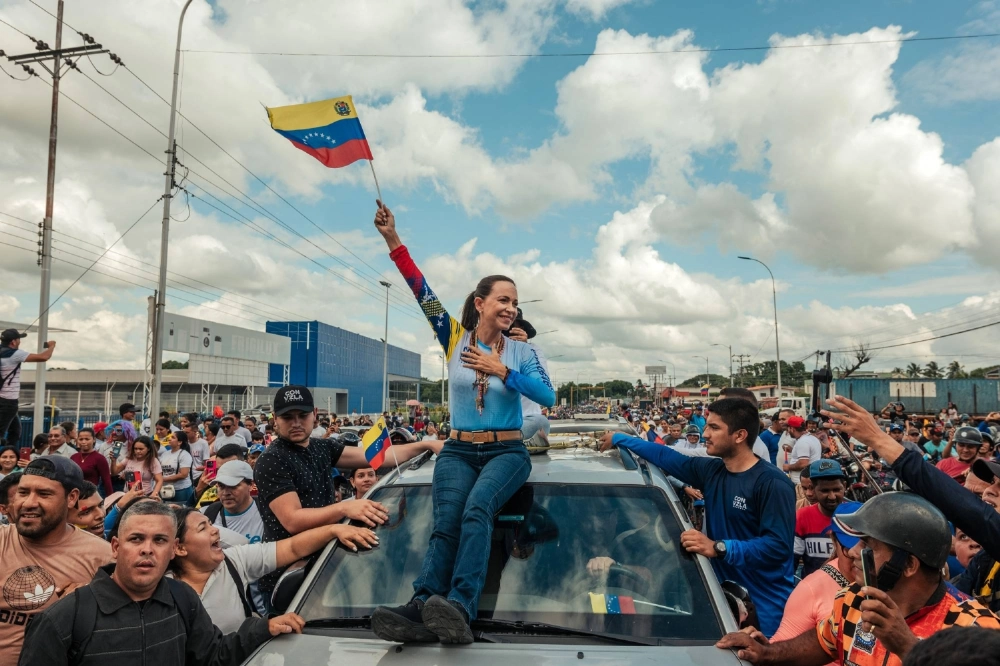Venezuelan President Nicolas Maduro has described opposition leader Maria Corina Machado as a "wild demoness,” a "war criminal,” and "la Sayona,” a vengeful spirit from the country's folklore.
On Friday morning, that same woman became the first in the country to receive the Nobel Peace Prize. She heard the news of her win while still in hiding from the autocrat’s oppressive regime.
It’s historic — and symbolic for the movement that likely would have ended more than two decades of socialist rule had Maduro not refused to accept his apparent election loss.

















With your current subscription plan you can comment on stories. However, before writing your first comment, please create a display name in the Profile section of your subscriber account page.